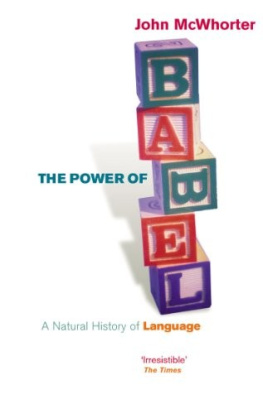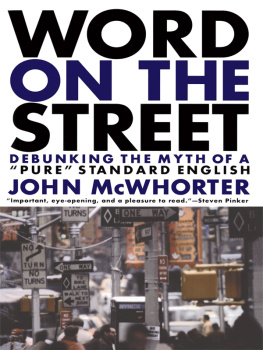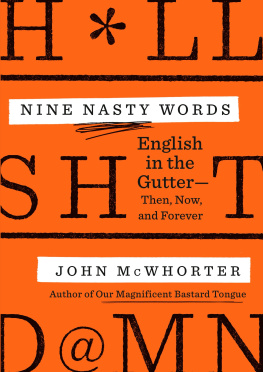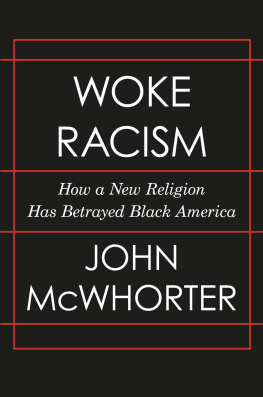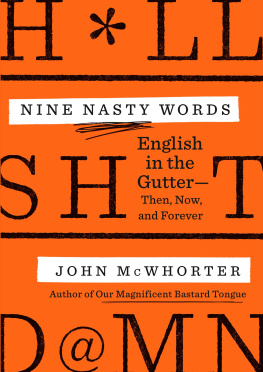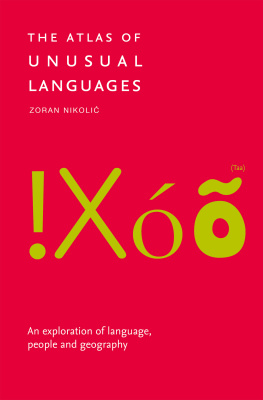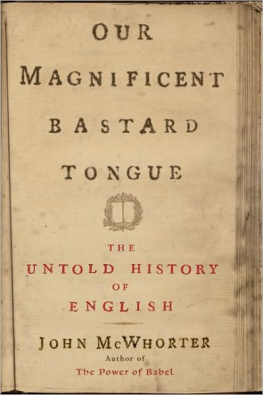John McWhorter - The Power of Babel: A Natural History of Language
Here you can read online John McWhorter - The Power of Babel: A Natural History of Language full text of the book (entire story) in english for free. Download pdf and epub, get meaning, cover and reviews about this ebook. year: 2011, publisher: Cornerstone Digital, genre: Home and family. Description of the work, (preface) as well as reviews are available. Best literature library LitArk.com created for fans of good reading and offers a wide selection of genres:
Romance novel
Science fiction
Adventure
Detective
Science
History
Home and family
Prose
Art
Politics
Computer
Non-fiction
Religion
Business
Children
Humor
Choose a favorite category and find really read worthwhile books. Enjoy immersion in the world of imagination, feel the emotions of the characters or learn something new for yourself, make an fascinating discovery.
- Book:The Power of Babel: A Natural History of Language
- Author:
- Publisher:Cornerstone Digital
- Genre:
- Year:2011
- Rating:5 / 5
- Favourites:Add to favourites
- Your mark:
The Power of Babel: A Natural History of Language: summary, description and annotation
We offer to read an annotation, description, summary or preface (depends on what the author of the book "The Power of Babel: A Natural History of Language" wrote himself). If you haven't found the necessary information about the book — write in the comments, we will try to find it.
There can be few subjects of such widespread interest and fascination to anyone who reads as the strange ways of languages. In this wonderfully entertaining and fascinating book, John McWhorter introduces us to the natural history of language: from Russonorsk, a creole of Russian and Norwegian once spoken by trading fur trappers to an Australian Aboriginal language which only has three verbs. Witty, brilliant and authoritative, this book is a must for anyone who is interested in language, as sheerly enjoyable as non-fiction gets.
**
From Library JournalStarting with the well-known model of relationships among languages as a family tree, McWhorter (linguistics, Berkeley) fleshes out and refines this model as he narrates development of language. He explores five main ways that languages change, such as sound change and the transformation of words into pieces of grammar. McWhorter further illuminates and compares concepts of dialect, pidgin, and Creole to demonstrate the changing nature of language. Through the discussion, he replaces the family-tree model of language relations with the more sophisticated images of a bush and a net. Numerous examples support each point, including cartoons illustrating German dialects. Indeed, the sheer weight of all the examples and detailed discussion could discourage an initially curious reader. While McWhorter reaches out to general readers by avoiding jargon and using an informal tone, brevity is needed to reach the maximum audience. Steven Fisher offers a narrative language history in History of Language (Reaktion, 1999), but while Fisher presents a slightly briefer account, it is also far more technical, with an emphasis on evolutionary theory. Not an essential purchase, McWhorters work is recommended only for public libraries with large language collections. Marianne Orme, Des Plaines P.L., IL
Copyright 2001 Reed Business Information, Inc.
This book is not for those uncomfortable with change. McWhorters main goal is to convey to laypeople what linguists know about the inexorable changeability of languages. He compares our popular understanding of language to Monopoly instructions--static and written as though from on high. But whereas Parkers Brothers is not likely to revise the rules of its game, language is as transitory as a cloud formation. From this analogy, aided by parallels with natural evolution, McWhorter shows us how the worlds many dialects arose from a single Ur-tongue. He emphasizes the idea that dialect is all there is. What we call a standard language is in fact a dialect that has been anointed by people in power and by cultural circumstances. All this becomes a tad academic in places, but McWhorters use of analogies, anecdotes, and popular culture keeps the discussion lively. A worthy contribution to our understanding of the defining feature of human life. Philip Herbst
Copyright American Library Association. All rights reserved
John McWhorter: author's other books
Who wrote The Power of Babel: A Natural History of Language? Find out the surname, the name of the author of the book and a list of all author's works by series.

